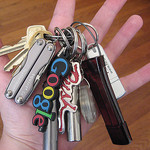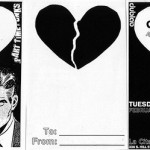I had an enlightening conversation with a friend of mine the other day about her divorce. It seemed that she had come to a place of deeper and more expanded understanding about the meaning of this traumatic event in the overall “story” of her life…and I was interested to hear it. As I thought about our conversation more I realized that major life traumas coming at us seemingly “out of left field”, are profoundly disruptive precisely because they force us to question our whole “story” about the way things “ought to be”. The “marriage” story, for example is told to us as a “happily ever after” story, in spite of the fact that this particular “story” turns out often to be more of a cultural myth. We have internalized the ”fairy tale” ending to the marriage story so thoroughly, however, that our lives and identity are built around having faith in it. When faith is shattered it can feel like the whole world is falling apart and will never be set right again. In this sense I think divorce can be actually an existential crisis…a crisis of “meaning” in a very real sense. The divorce crisis was shattering to my friend and it was equally shattering for her two teenage children. Thinking back on it now I can remember specifically that my friend’s daughter had the following to say immediately upon learning that her parents were separating: “Oh no no no…this doesn’t happen in our family….not in our family!!” (Translation: It may happen in other families, but not ours…this is not our story)
So…what Is the Deeper and More Expanded Understanding Of Which I Speak?
If you look at your life as one long story with many different chapters, then the difficult times you go through become not the “whole” of your life, but rather just discreet chapters that have a beginning and an end. With the passage of time the traumatic chapters become a part of the overall narrative of who and where you are now…. rather than a definition of where you are still stuck. I know my friend is no longer “stuck” in the trauma of her divorce because I hear her say that she can look back upon the chapters of her life involving her ex husband with a certain fondness. She can appreciate how those chapters informed the identity of who she is now.…as well as appreciate the “gift” of her children…who after all would not be who they are without the father they had. In my mind…my friend has resilience in the best sense of the word. It doesn’t mean she will ever be “best friends” with her ex…but I think it does mean that her kids are relieved of the burden of worrying that she will never really recover. She doesn’t need their protection.
All The World Is Your Stage…You Can Write Your Script As You So Choose
I like to think of my life as a “Play”, with myself as the central character. People come in and out of my life in many ways. Some stay for a long time. Others are in and out quickly. Some people have just a short “cameo” but they still have a profound influence on me. Sometimes I kick my characters out, and other times they leave very quickly and painfully. None of these details really matter at the end of the day if I can interpret everyone as somehow essential to the overall arc of my narrative. That part is up to me…it’s my interpretation and my “play” after all. I get to choose, and my friend gets to choose too. I like to think that we are both choosing in the direction of growth and positivity. Interestingly, of course, all the people we have come into contact with in our lifetime also have their own narratives. I always think that we would be surprised to know the profound impact we have had on others in the construction of their life narrative. We probably underestimate it…which I why I try to tell people whenever I can how important they are to me.
The Gift Of Our Long Term Relationships
If you have friends and family that have known and loved you since childhood you know how precious these relationships are. People who have been in your life for a long time have a way of knowing you at your very core so these are the people who can remind you of your essential self when you are in the midst of a personal crisis. Actually, just being in their presence reminds you. Equally importantly, I think, your long term “fans” can “challenge” you to be your best self and you will not experience the challenge as a threat. You will be able to see the truth in what they say. Such people are central characters in your play, I think. Hold them close to you like gold and know that you are also a central character in their life narrative. Friends, old and new are the best antidotes to all that ails you emotionally…(this actually is a scientifically proven fact, by the way) So..pay attention to the old song….”make new friends but keep the old….one is silver and the other gold. (hokey..but true nonetheless!)
In closing…I can only say…happy script writing! Write yourself a vital and interesting story in which you are the hero…even if you are the only one who knows it.
By Leslie Kays MFT









